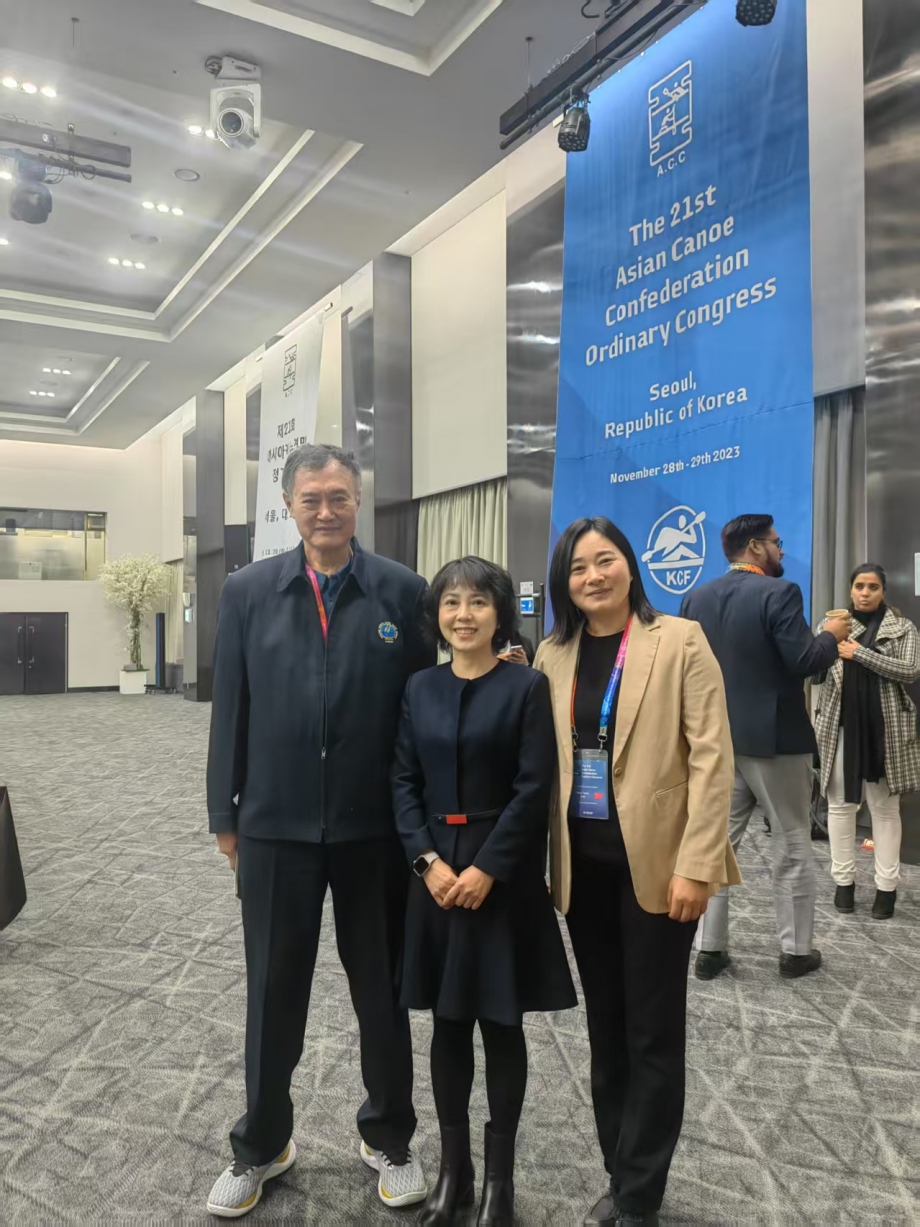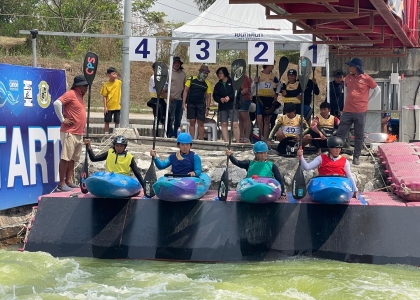As part of Gender Equality Month, the International Canoe Federation is profiling five influential female leaders from each continent that are blazing a trail for women in the sport. Next up is ICF Board member Shao Yaping of China.
Memories of the Beijing 2008 Olympic Games remain strong for Shao Yaping when she reflects on the events that have so far shaped her career in the sport.
Yaping was a member of the Organising Committee in Beijing as the Canoe Sprint Technical Operation Manager at the Games.
Working at a home Olympics was a big responsibility but one that she relished and proved to her that the sport of canoeing was where she wanted to stay.
“During the time I was in Beijing, I learned a lot, not only about the sport, but also the highest level of event organisation,” said Yaping.
“It's one of the most important parts of my life.
“It was also from that time that I made my career choices without hesitation in choosing to continue working in the sport.”
Before the 2008 Olympics in Beijing, Yaping had been working in both Canoe Slalom and rowing during her time at the Guangdong International Boating Center.
Sport has always been a big part of Yaping’s life having done a bachelor's degree in physical education at the Wuhan Institute of Physical Education and A master’s degree in sports education at Beijing Sports University.

It’s canoeing which has become Yaping’s happy place.
“I got into canoeing during the time I was in high school, and I started it in the summer holidays,” said Yaping.
“I love the sunshine and beautiful nature, and with a boat I feel relaxed and happy.
“When the sport becomes my career, I think I'm one of the lucky people, as you are making a life with things that you like.”
Yaping is a proud female in the sport and is delight to work within organisations that have supported her in her career.
“Balancing family and work might be a challenge, but I probably don't feel much of a difference being a woman in the sport in China,” said Yaping.
“I am the Director of Guangdong International Rowing and Canoeing Training Center in China, so I always have a lot of work assignments, but I think it is already a well-run and internationalised centre, so our working team is very professional, which allows me to handle this series of things well.
“I have worked for a very long time with sports teams gaining insights into the system of training and competitions, especially working with high-level coaches which has allowed me to grow and know more about our sports.

“That has helped me gain the ability to manage large-scale projects in various national and international competitions, such as the ICF World Cups held in Guangzhou, the Olympic Games held in Beijing, and the Asian Games held in Qatar and in Guangzhou.
“Working for the Asian Canoe Confederation has made me understand sports internationally from another angle.
“It was also the support and help of many friends in the Asian canoeing community that have brought me to where I am today.”
Yaping has been an Asian continental representative on the International Canoe Federation’s Board of Directors since her election in 2022.
She is pleased with the work done by the Asian Canoe Confederation (ACC) and the ICF in driving for gender equality.
“The ACC is trying to get more elite female athletes involved in the promotion of our sport and to work with the Athletes’ Committee,” said Yaping.
“I believe that such an arrangement will inevitably play a more positive role in the future.
“I also think the ICF is doing a good job in this area now, and if we want to optimise further, I believe we need to continue to follow the International Olympic Committee’s percentage rules on gender equality and try to keep the percentages as good as possible.”

Shixiao Xu and Mengya Sun hit the headlines in China last year when they captured the women’s canoe double 500m crown at the Olympic Games in Paris.
They have proven to be almost unbeaten in the boat, winning two Olympic golds and multiple world titles.
Yaping said Xu and Sun have become role models for young women in China but stressed the importance of International Women’s Day on March 8 in helping to continue to push for gender balance.
“Shixiao and Mengya are admired by many athletes and young people, just like a symbol of positive energy,” said Yaping.
“International Women's Day is a global recognition of women's social, economic and cultural achievements, and it is also an opportunity to reflect on the progress of gender equality.
“In the field of sports, it highlights the long-standing challenges that women have faced, but for me, I think the ICF has done very well in gender equality, that's why I can be one of the Board of Directors.
“The meaning of International Women's Day is to translate the celebration into action and to promote substantive change at the policy level.”
Related links




